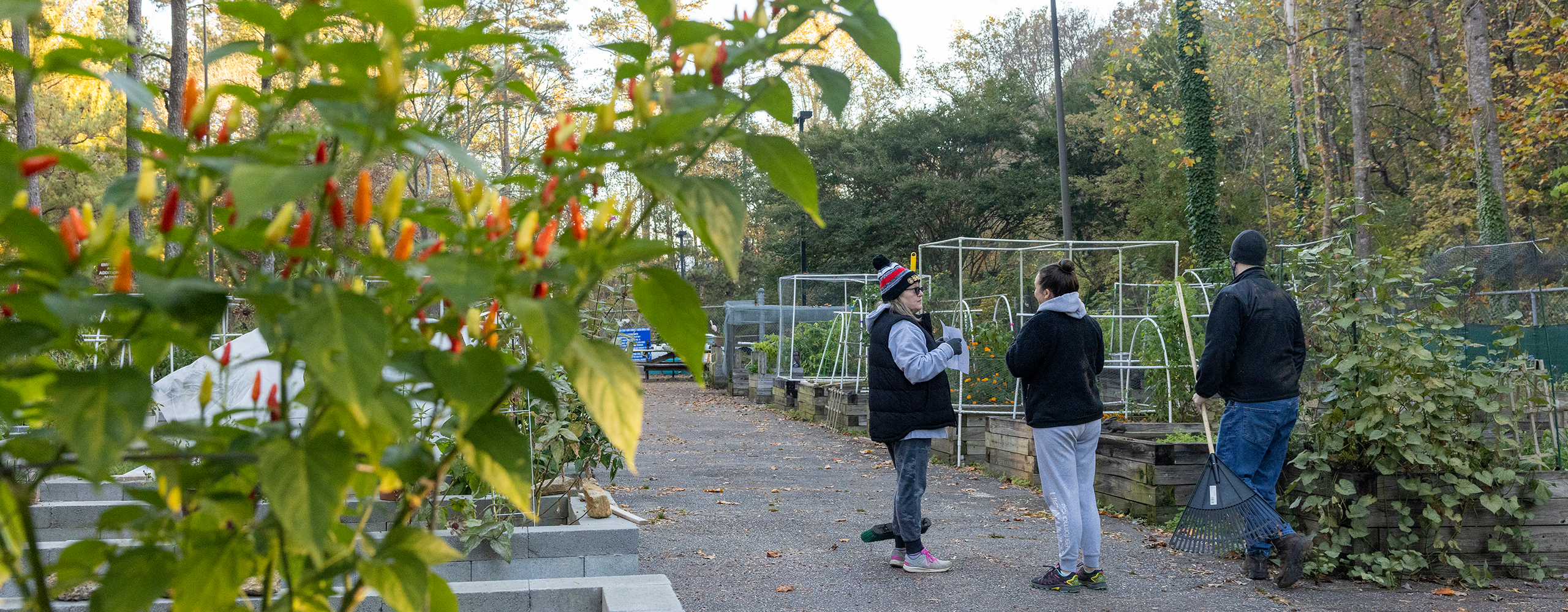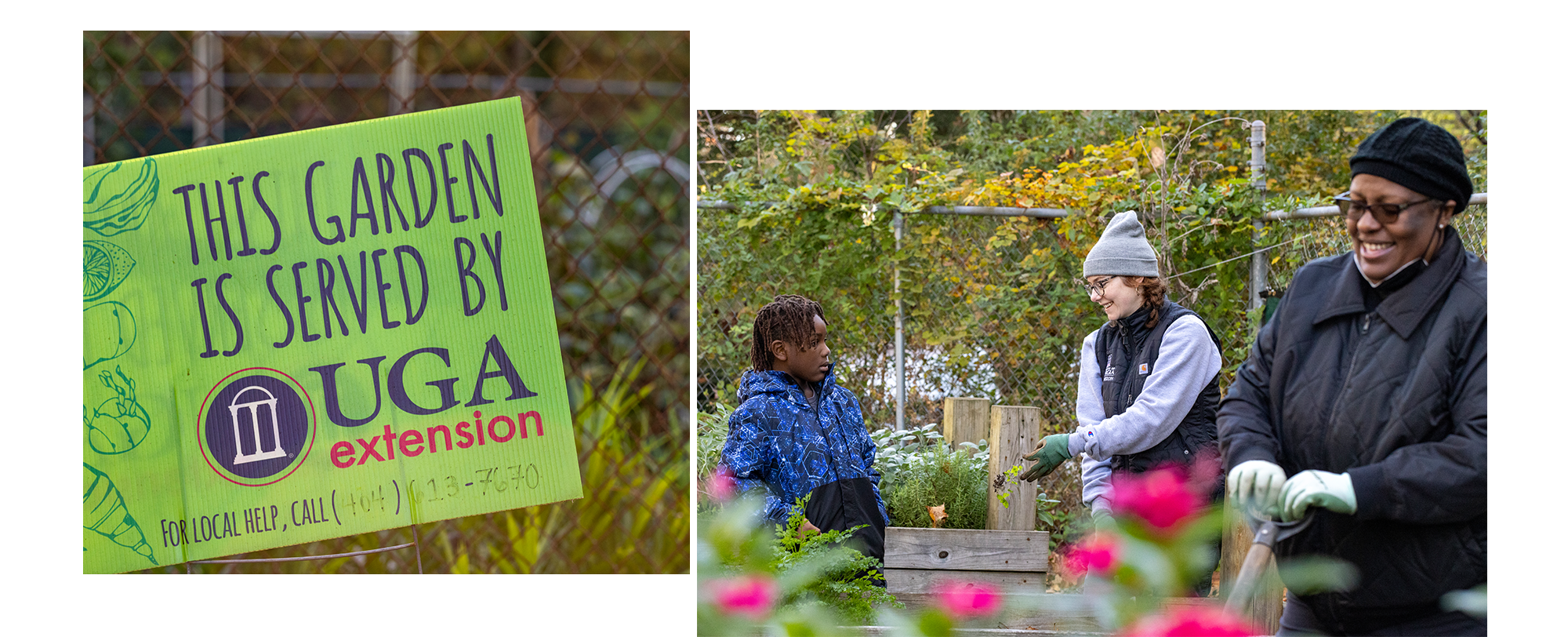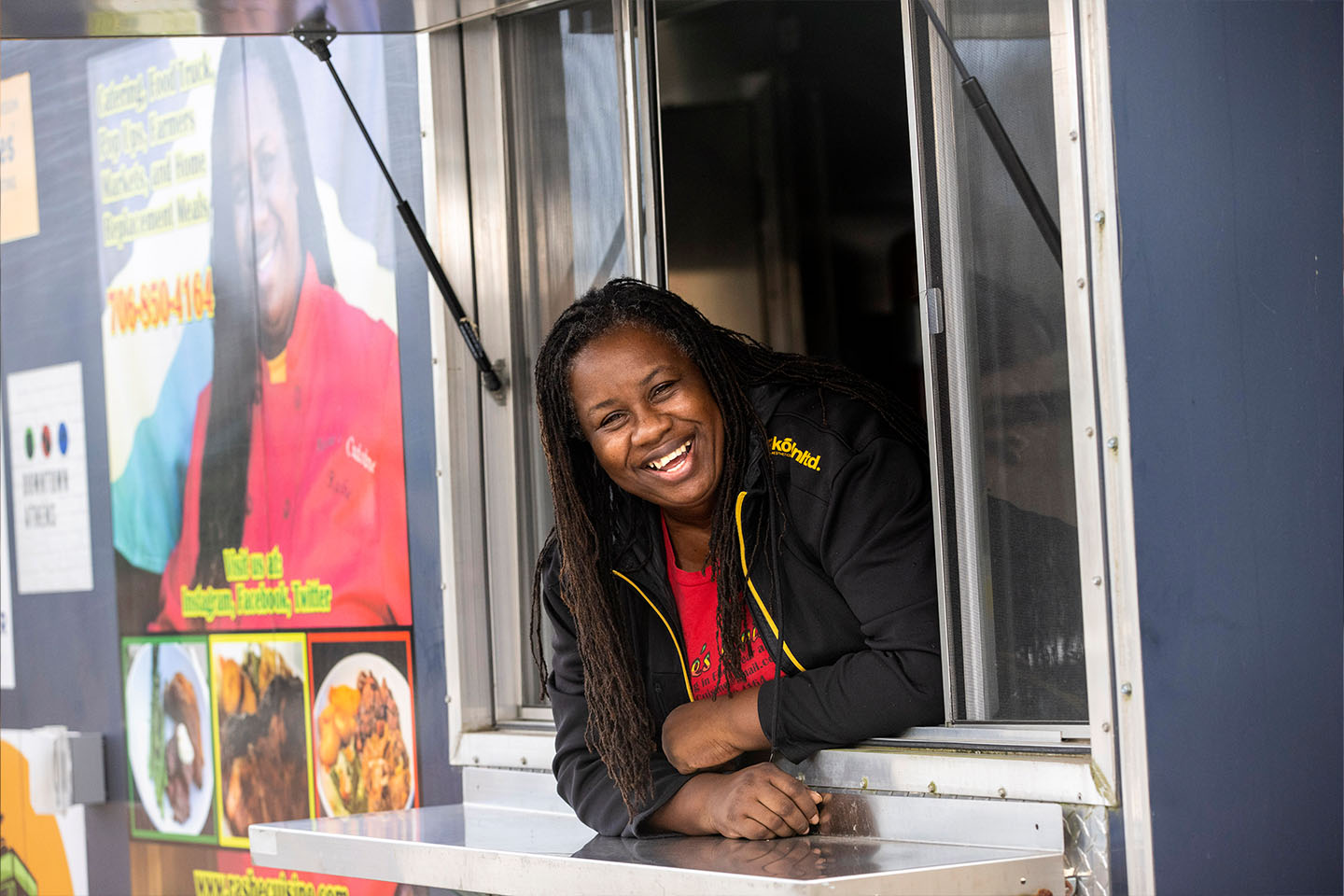Nourishing communities in metro Atlanta
In the ever-growing metropolis of Atlanta, an invisible challenge persists for many residents — food insecurity. Defined as having limited or uncertain access to adequate, nutritious food, the reasons behind this challenge are complex and multifaceted. With dedicated efforts to address this pressing issue, the University of Georgia has boots on the ground offering a combination of education and community engagement, nourishing both bodies and communities in the process.
File Under
Early on a cold November morning, dozens of people sort and pack fresh produce into hundreds of bags in a flurry of activity, preparing for delivery later in the day.
Von Baker smiles at a man carrying several bags in each hand and directs him to a food truck with the words “Fulton Fresh” brightly painted on the side. In an hour, two trucks will be packed to the brim with nearly 6,000 pounds of fresh produce — enough to feed 600 families that week. The food supports people living in food deserts throughout south Fulton County, where grocery stores are few and far between.
The Fulton Fresh Mobile Market operated by University of Georgia Cooperative Extension in collaboration with 28 local organizations, brings fresh and nutritious food directly to communities in need for 15 weeks out of the year. The mobile market ensures that even those without easy access to transportation can benefit from the resources provided and has the added benefit of helping support families while schools are closed during summer break.
Baker, the County Extension coordinator and a Family and Consumer Sciences agent in Fulton, says she’s in the business of serving people.
Before taking a promotion and moving to the Fulton County office in 2017, Baker served as the FACS agent in neighboring DeKalb County, where she helped run a similar program called Fresh on DeK Mobile Farmer’s Market.

“When will the need be fully met? When has enough food and education been provided?”
At each market location, the federally funded UGA SNAP-Ed program provides educational programming, including classes focused on maintaining a balanced diet and creating budget-friendly meal plans. They also provide cooking demonstrations using the items in that week’s bag. The program aims to empower individuals and families with the knowledge and skills to make healthier food choices.
“It’s tempting to ask, ‘When will the need be fully met? When has enough food and education been provided?’” Baker said. “But the numerous factors that lead to food insecurity are complex and persistent. So we’ll stay the course, and through the strong partnerships we’ve built, we’ll continually increase our capacity to reach as many citizens as possible.”
Growing Partnerships
The market is one of the many ways UGA is activating solutions for pressing community challenges around food and food systems in Atlanta.
Recently, UGA Archway Partnership and the U.S. Department of Agriculture (USDA) began a collaboration to distribute a federal grant to advance agricultural initiatives and support community garden production and urban agriculture in Georgia.
The partnership starts with listening sessions in eight metro areas around the state designed to examine current food systems and community gardens and gain a greater understanding of current food insecurity issues that this grant aims to address.

Archway faculty member Angel Jackson led one such session on Nov. 29 with community leaders, extension agents, growers, and food systems experts. They came away with a report that will help target how to distribute the USDA grant.
“Great things are achieved when we all work together.”
Archway Partnership, a UGA Public Service and Outreach unit, is designed to serve as a bridge between community and university resources.
“Great things are achieved when we all work together,” said Jackson. “These listening sessions reinforce that.”
Rooted in Community
For Phyliss Turner, a farmer at Metro Atlanta Urban Farm in College Park, the listening session connected her with information about funding and imbued her with optimism about tackling food insecurity in her community.
“This is a great starting point,” she says.

“UGA has always been instrumental in giving back to residents, and partnering with USDA only magnifies that impact.”
MJ Stevenson of We Thrive Community Partners says the growing collaboration between grassroots organizations, the USDA, and UGA is poised to make a difference in Metro Atlanta.
“UGA has always been instrumental in giving back to residents, and partnering with USDA only magnifies that impact. I mean, who doesn’t like a Bulldog?” Stevenson mused. “Having those two organizations come together to help increase awareness for the nutritional value of urban agriculture is monumental.”
That unwavering commitment to long-term, sustainable partnerships is part of UGA’s land-grant mission to serve the state. And it’s these kinds of spaces and initiatives that galvanize the community and support the common goal of addressing food insecurity — one garden at a time, one bag of food at a time.

For more information on how UGA Extension makes an impact in your community, visit your local UGA Extension office website. To learn more about the UGA Archway Partnership visit archwaypartnership.uga.edu.


